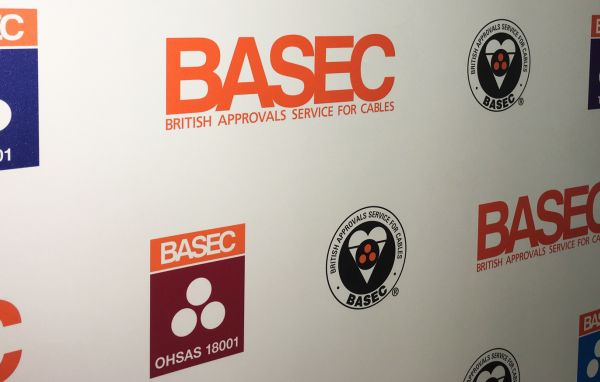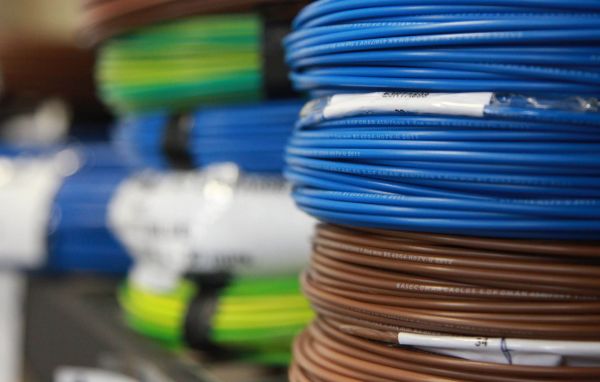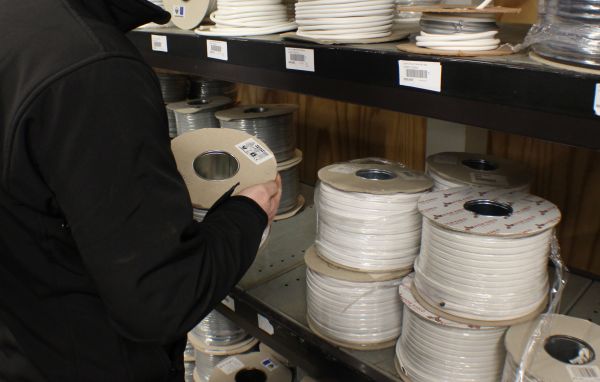Type Test vs Certification vs BASEC Product Certification
Do you know the difference between Type Testing, Product Certification and BASEC Product Certification? This guide should clarify the differences, as confusion in the market may lead to poor choices.
Cables can be complex in construction, with multiple layers of metallic and non-metallic materials, with a range of thicknesses and manufacturing processes which vary dependent on the cable functions and application requirements.
The materials used in cable layers, i.e., insulation, bedding, sheath, fillers, tapes, screens, coatings, etc., have unique properties, and these must be consistently achieved through well-controlled manufacturing processes.
Confirmation of the cable’s suitability for its required application and performance is done routinely by the manufacturer and end-user but can also be undertaken by independent organisations via testing and certification.
Third Party Type Testing or One-Off Testing
It should be remembered that when “cable testing” is referenced, it could be full type testing as per a particular design standard of cable type (e.g., BS 5467, BS 6724, etc.), or it could be just one of the specific tests on a particular cable type (e.g., Halogen content test such as IEC 60754-1 or Smoke emission test as per IEC 61034-2, etc. on LSZH cables). Important points to note with One off-testing by a third party are:
- Type testing on cable is undertaken only on one cable size/sample in a particular cable type/construction or voltage grade
- The cable manufacturer prepares the sample at the factory, tests it internally and then sends it to a third-party laboratory for testing
- There is no third-party involvement in the selection of the samples leading to suspicions that only good or “Golden Samples” are tested
- Once tests are passed, third-party type test reports are issued
- The type test report only covers the samples tested. It cannot be used to claim that non-tested samples conform to the standard or meet the specification requirements
- These kinds of tests are not generally repeated within a 5–10-year timeline unless requested by customers or authorities/utilities
- Therefore, type testing is a snapshot in time, without continuous assessment of cable quality or changes in the manufacturing process or raw materials through routine testing and/or production surveillance
Third Party Certification for Cables
Certification is one step ahead of type testing and involves audits of cable manufacturing factories and, in some cases, annual cable sample testing.
Important points to note with certification by a third-party are:
- Certification is always for a cable product range (covers all cable sizes/cores)
- It involves factory audits and, in some cases, annual cable testing
- Certificate validity is usually valid for 3 years but reissued providing routine auditing and testing confirms ongoing conformity
- The advantage over type testing is the ongoing surveillance of production through audits and testing in some cases
BASEC Product Certification (or Product Approval)
This is a robust cable certification scheme, unlike others on the market which are limited to minimal audits or limited testing. It is a unique combination of stringent routine sample testing, routine factory audits, unannounced visits/sample testing, and market surveillance for BASEC marked cables. It includes:
Initial Approval (Testing and Initial Factory Surveillance Audit):
- BASEC auditors visit cable manufacturing factories and assess initially against BASEC’s PCR requirements which include ISO 9001 requirements but also have specific requirements for cable manufacturing certification
- Samples are submitted to BASEC for testing, and if testing is successful, product certification is granted subject to a successful initial audit
- The manufacturer can now use BASEC mark/logo on their cable, marking or drum labelling or branding
- Samples are selected by BASEC and tested a minimum of two times each year
- Three routine audits are undertaken each year, and during these audits, cable samples are selected by auditors, and these samples are sent to BASEC for testing.
- BASEC performs fingerprinting of individual raw materials used in cables through TGA/FTIR analysis. Any change in cable raw material or composition can be identified during routine tests
- BASEC sources samples of cable each year from the market through a range of stockists and test these to assess the performance of certified cables
Ongoing Surveillance (Routine Testing and Auditing):
BASEC’s product approval scheme is the leading and best-known cable approval scheme currently on the market. BASEC’s approval is not easily achieved and maintained, unlike other certification schemes, due to its extensive and routine surveillance activities.
BASEC approved cables can be used with the assurance that they are subject to a stringent testing and surveillance programme by an internationally recognised and accredited Certification Body under its BASEC approval scheme. BASEC, with laboratories in the UK and Dubai, is placed to drive product performance and safety worldwide. We would always recommend choosing certification over once-off type testing, and for those who value certification and the assurance it provides, then BASEC is the preferred choice.
Please get in touch with us for any enquiries on testing and cable approvals.




